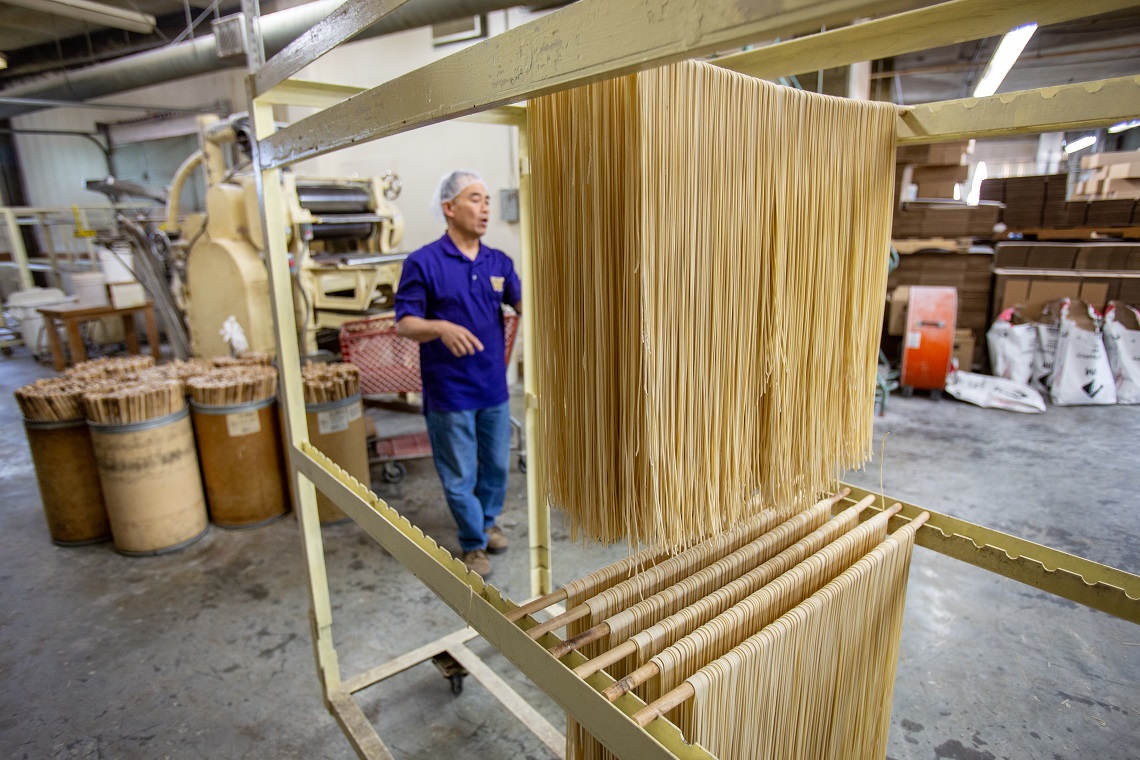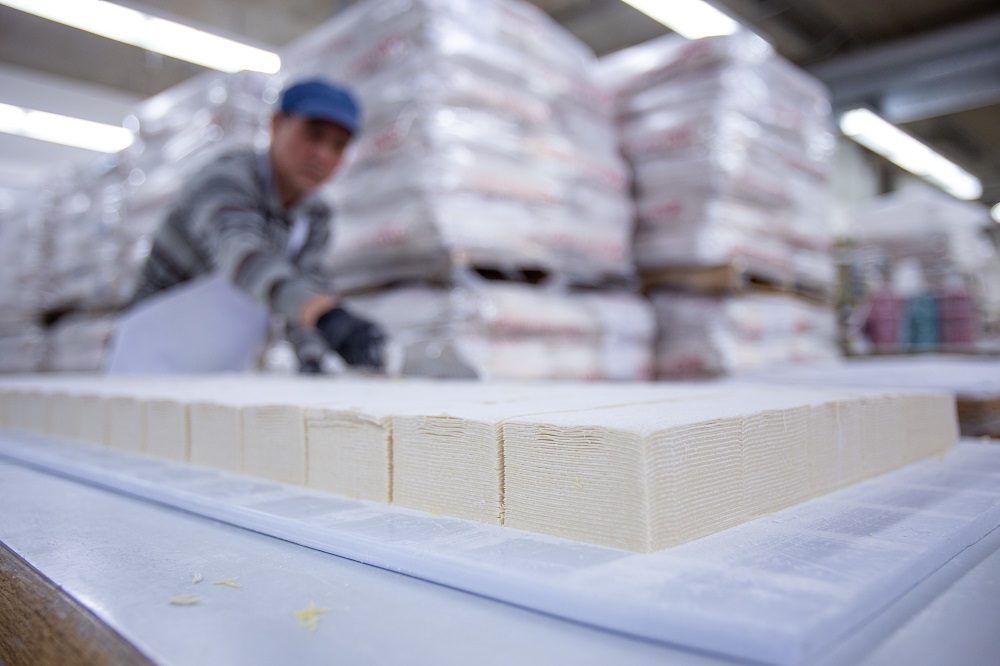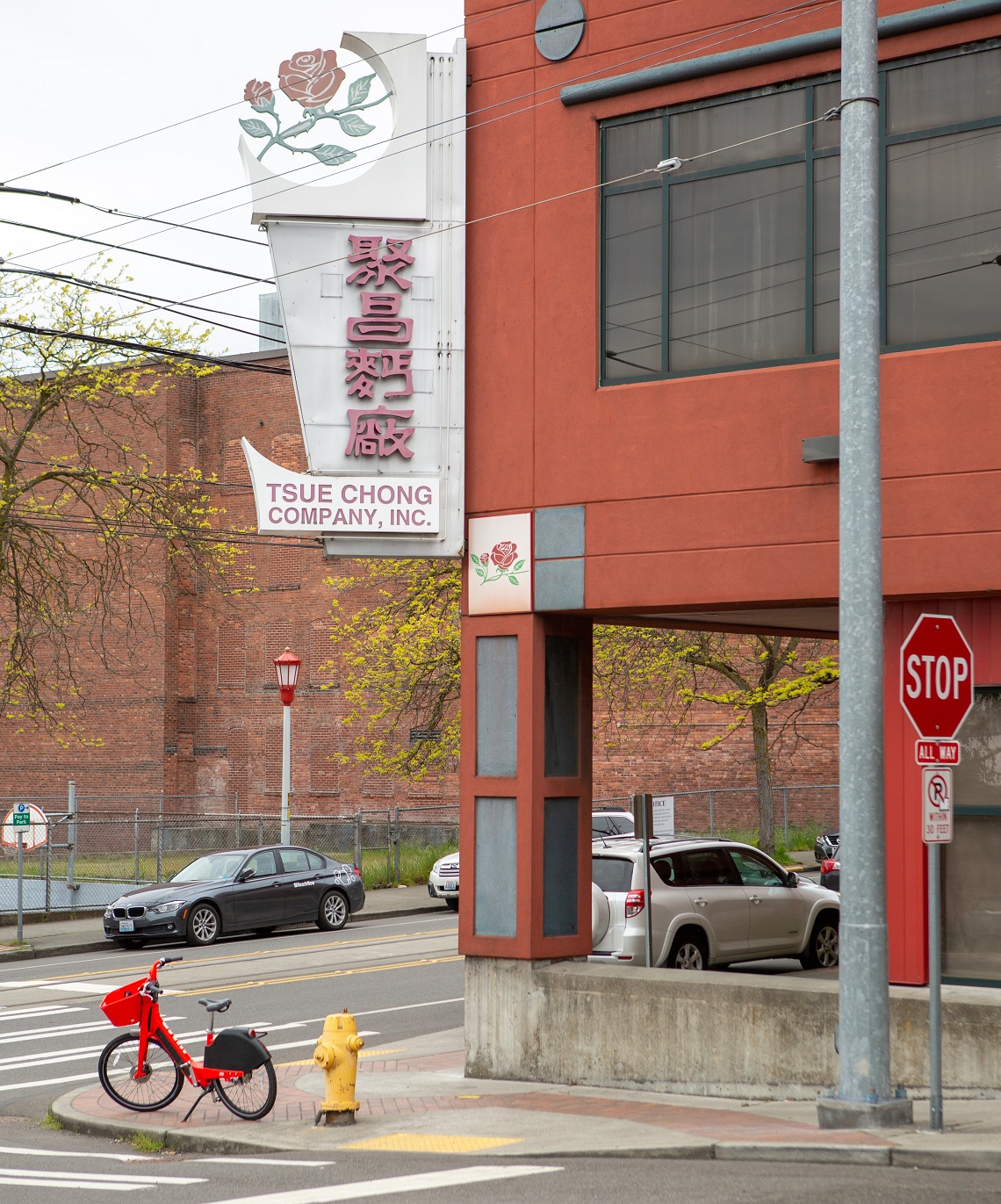Flour, Water, Eggs, Salt
Tim Louie takes a century-old family recipe for success into modern times
“Pillar of the community,” decrees Tim Louie’s old Scoutmaster, who has dropped by the Tsue Chong Company to pick up some fortune cookies to take to the VA hospital. “The pride and joy of Chinatown!”
He’s speaking of Louie (BA 1984), an Eagle Scout back in the day who now runs Tsue Chong, the century-old maker of Chinese noodles and cookies, which has become an institution as essential to Seattle’s Chinatown/International District as Louie himself.
Just as it has been for generations.
Family + flour
The Louie family business dates back to Tim’s great grandfather. Gar Hip Louie immigrated from his small town in southern China to Seattle to work as a general laborer in the late 1880s. Finding nowhere to buy the staple of the Chinese diet, he began selling handmade noodles, wrapped in newspaper and delivered fresh. “He saw an opportunity,” Tim Louie says, “and started making noodles himself, using four simple ingredients: flour, water, eggs and salt.”
In 1917—the same year the Foster School of Business was founded—Gar Hip Louie formally established Tsue Chong.

When he retired, he handed over operations to Fat Yuen Louie, Tim’s grandfather, who ran the show for many decades with his wife, Eng Shee Louie. She introduced fortune cookies to Seattle, folding and stuffing thousands each day.
In the 1970s, company leadership passed down to Henry Louie, Tim’s father, and his Uncle Kenneth.
Tim’s time
For young Tim Louie, Tsue Chong was preschool, playground and, eventually, employer. “It was a negotiating tool to get my driver’s license early,” he says. “I told my dad, ‘If I can drive, I can deliver noodles for you.’ ”

At Whitworth College, Louie initially studied pre-engineering before having a change of heart. “I realized that the family business is not such a bad deal,” he says. “It was already set up. And it wasn’t like a Chinese restaurant where you have to work every evening and weekend. I thought, why not?”
So, he transferred to the UW and switched his major to business administration.

After graduation, he rejoined the family business. And, apart from a brief departure to hone sales skills at a big food service company, he’s been at Tsue Chong ever since.
He took over for his father and uncle just before the Great Recession struck.
Modernizing the operation
Though noodles are somewhat economy-proof—“People always have to eat,” Louie says—he had to make some tough decisions to sustain the company into its second century. Some strategic adjustments led to more efficient operations. He invested in new accounting systems. And he brought in some truly magical modern machinery whose hum, hiss and clank would draw a wink from Willy Wonka.
Louie’s modernization campaign eventually earned the approval of his skeptical elders. “Now my dad thinks we should have done this years ago!” he says.
Today, Tsue Chong is as booming as the city it calls home. Louie & Co. produces 10,000 pounds of noodle products—fresh, dried, steamed and fried, plus wrappers for wontons, gyoza and egg rolls—and 80,000 fortune cookies every day, under the Rose Brand. All of this is distributed to restaurants and groceries throughout the Pacific Northwest and as far afield as Denver and Salt Lake City.
People business
The secret of this success is not difficult to see. Louie is a steward as much as an innovator, maintaining family traditions even as he transports Tsue Chong into the modern era.

“They say that everyone is six degrees from anyone in the world,” he says. “In Chinatown, it’s two degrees. So, I’ve learned to treat everyone with respect and kindness. Our success, our longevity is really about relationships. That was passed down from my great grandfather to my grandfather to my father to me. We do everything ethically and with integrity, work hard, treat our employees well and build relationships. And those relationships last a long time.”
Which is why Tsue Chong can feel like a community center as much as a place of business. Retired workers drop by to say hello. Family members hang out in the office. School kids come on field trips, or Boy Scouts from Louie’s childhood troop (which he still leads today).
He welcomes all with the grace of a head of state, flour-dusted shirt notwithstanding. In his business, relationships are everything.
And noodles are forever.

